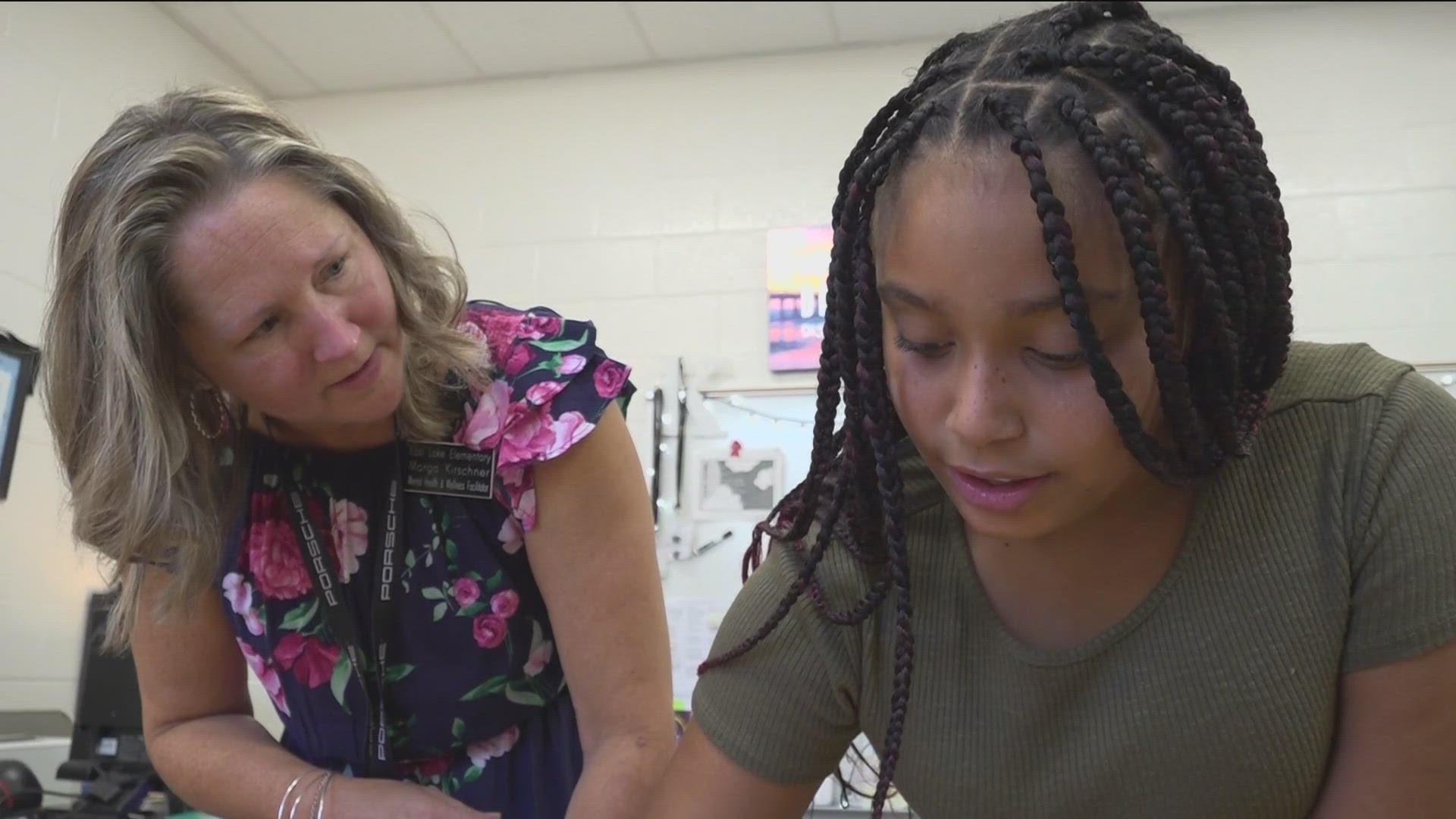HENRY COUNTY, Ga. — Students' mental health continues to be a major priority for school districts across metro Atlanta, and one county gave 11Alive a look at the investment being made to support students.
"I first came to East Lake Elementary in the fourth grade because I was moving from New York," Henry Grant, now a fifth grader, said. "And I was really sad about that."
Grant admits starting a new school in Henry County was particularly tough. But after taking the district's 'Henry Cares' survey, he met Marga Kirschner, the elementary school's mental health and wellness facilitator.
It was that relationship that really turned things around, Grant said.
"She's a person I can trust in this school," he shared. "She's someone I can talk to."
Kirschner, a district veteran for more than two decades, served in a range of positions. She now spends her time supporting students’ mental health. The district created the mental health and wellness facilitator roles, one for each of the district’s 52 schools, through the use of the American Rescue Plan Act funding.
“We see students that come in that have had a hard morning,” Kirschner said. “We see kids that get frustrated because math or other work. The good news is these coping strategies are universal. They work in multiple situations.”
Kids like Henry Grant and others who spoke with 11Alive talked about the impact of Mrs. Kirschner’s efforts and the availability of the school’s wellness room, dim lighting, re-set tools, comfort items and books that can help kids regulate emotions.
“It’s changed everything,” Grant shared, adding the room reminds him of home.
Kirschner and her counterparts are also tasked with collecting student check-in data throughout the year.
“Our job is to utilize that data, and our goal is to ensure ever kid in our building has a caring adult they can count on no matter what,” Kirschner said.
Dr. Nicholas Samuels also sees the benefit of such relationships play out among the teens he supports as a mental health and wellness facilitator at Dutchtown High.
“I know that we focus on some of the negatives that may take place, fightings and things of that nature,” Samuels said. “But how many of the disruptions we're able to prevent just by teaching kids skills that help them navigate their emotions when they’re at a heightened level of anger, of anxiety?”
As a result, Samuels and Kirschner both work on equipping students with coping and communication skills that can be employed in the classroom and beyond. The facilitator role also helps coordinate needed support in other areas of the child or family’s life through school counselors and social workers.
Superintendent Dr. Mary Elizabeth Davis said the district is measuring the impact of such a role as part of a case study with the Johns Hopkins Institute for Education Policy. The district has already seen more than 80% of students return to class the same day following the intervention, according to Davis, a testament to the support the facilitators provide.
“When they’re given an outlet to grapple with emotions and actually have an adult that safely walks them through that, they actually return to class and are better prepared for the learning environment,” she explained.
Davis added that the district will need to secure long-term funding to ensure the position continues, though she already sees the need to expand such support.
“Depending on the size of the school, the enrollment of the school, it’s actually time to think about whether there needs to be two or three mental health and wellness facilitators at a given school.”

